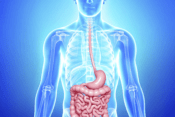
Techniques for Slowing Down While Eating: A Guide to Better Digestion and Satisfaction
While having lunch with a friend at a new café in town on one of those nonstop days, I felt like I barely had a moment to breathe. When we sat down to eat, I was so hungry that I hardly paid attention to anything else. My friend was telling me a story, but all I could think about was finishing my food. Before I knew it, I had eaten almost everything on my plate, barely even tasting it. My friend looked at me and laughed, saying, “Are you even tasting your food?”
She was right—I hadn’t really tasted it at all. I was so focused on eating quickly so I could get back to my busy day. Later, I felt uncomfortable and still not completely satisfied, as though I hadn’t really had a proper meal.
That experience got me thinking about how often I rush through my meals, missing out on the chance to really enjoy them. I started looking into ways to slow down while eating and was surprised to find that taking time to savor each bite can actually help with digestion and make you feel fuller.
Research shows that eating quickly is associated with poor digestion, weight gain, and even reduced satisfaction. Studies, like one conducted by the American Heart Association in 2020, have linked rapid eating with a 29% increased risk of metabolic syndrome, a cluster of conditions that raise the risk of heart disease, diabetes, and stroke. Slowing down while eating, therefore, isn’t just a wellness trend—it’s a valuable practice with benefits backed by science. Let’s look at why it’s essential to pace your eating and provide you with effective, practical techniques to help you savor each bite.
Why Slowing Down Matters
- Improved Digestion
When you eat slowly, you give your body the time it needs to properly chew food, which aids digestion. Dr. Susan Albers, a clinical psychologist and expert on mindful eating, explains that chewing thoroughly allows food particles to be broken down better, making it easier for the stomach and intestines to digest. Eating too quickly often leads to indigestion, bloating, and even acid reflux because large, unchewed pieces can be hard for the stomach to break down. - Increased Satisfaction and Fullness
Did you know it takes approximately 20 minutes for your brain to register that you’re full? Eating slowly allows your body time to release the hormone leptin, which signals fullness and satisfaction. Research published in the journal Appetite revealed that individuals who ate slower reported feeling more satisfied and consumed fewer calories than their fast-eating counterparts. - Weight Management
Slower eating has been linked to weight loss and improved weight management. A study from Japan’s Kyushu University tracked over 1,000 participants and found that those who ate more slowly had a lower Body Mass Index (BMI) and were less likely to be obese compared to fast eaters. By practicing slower eating, you may reduce your overall food intake, making it a practical approach for managing weight.
Practical Techniques to Slow Down While Eating
Now that we understand the science, let’s look at techniques you can start using today to make meals more enjoyable and beneficial for your health.
1. Practice Mindful Eating
Mindful eating involves paying full attention to your meal. This technique encourages you to notice the colors, smells, textures, and flavors of your food. Take a deep breath before each bite and try to savor the experience fully. A 2019 study in Frontiers in Psychology found that participants who practiced mindful eating reported reduced binge eating episodes and had better control over their eating habits.
Tip: Before you begin eating, set aside distractions such as your phone or TV. Focusing solely on your meal can help you become more aware of when you’re satisfied.
2. Use Smaller Utensils and Take Smaller Bites
Switching to smaller utensils, like a teaspoon, can help slow down your eating pace. Taking smaller bites naturally extends your mealtime and gives your stomach more time to signal fullness to the brain. This is a simple, highly effective strategy that can easily be integrated into daily meals.
Tip: Try using chopsticks, even if you’re not accustomed to them. They can help slow you down and encourage smaller, more mindful bites.
3. Chew Thoroughly and Count Your Chews
Counting your chews might sound tedious, but it’s a proven way to slow down. Aim to chew each bite around 20–30 times, as recommended by many dieticians. This practice ensures that food is broken down sufficiently, allowing for better digestion and giving your brain time to process that you’re eating.
Expert Insight: According to Dr. Haruko Iwai, a dietician in Japan, chewing more can lead to greater meal satisfaction and reduced hunger. This practice, she explains, helps stimulate the release of enzymes necessary for digestion and absorption.
4. Put Your Fork Down Between Bites
A simple trick to slow down is to place your fork down on the table after each bite. This pause encourages you to savor what’s in your mouth and prevents you from rushing through the meal. Studies show that those who put down their utensils between bites tend to eat less and enjoy their meals more.
Tip: If putting down your fork feels too intentional, consider setting a timer to take a brief pause between bites. Even just a few seconds can make a significant difference.
5. Set Aside Mealtime Rituals
Creating a ritual around your meals, like setting the table or lighting a candle, can make eating feel more like an event than just a necessary activity. These small actions help prepare your mind to slow down, savor the moment, and enjoy the sensory experience of eating.
Tip: Try starting with a small ritual, such as expressing gratitude before eating. This helps you become more present and appreciative of the meal.
6. Drink Water Between Bites
Drinking water between bites can help extend your mealtime and give you a fuller sensation without adding extra calories. Taking small sips of water can also aid digestion and improve hydration, enhancing the eating experience and supporting your body.
Tip: Keep a glass of water next to your plate and try to drink after every few bites. This simple action can help pace your meal and avoid overeating.
7. Engage in Conversation
If you’re eating with friends or family, engaging in conversation can help slow your pace. Talking allows natural pauses in eating, giving you more time to feel full. Social eating also improves meal enjoyment and reduces the temptation to eat too quickly.
Research Insight: According to a 2021 study from the University of North Carolina, individuals who ate with family or friends tended to eat slower and enjoyed their meals more, reporting higher satisfaction levels.
The Benefits of Slower Eating: Health and Well-being
Slowing down while eating doesn’t just benefit your physical health; it also contributes to mental and emotional well-being. By savoring your food, you can build a healthier relationship with eating, reduce feelings of guilt, and feel more in tune with your body’s needs. Here’s a quick look at some additional benefits:
- Improved Heart Health: Fast eating has been associated with metabolic syndrome, a precursor to heart disease. By slowing down, you help reduce these risks.
- Enhanced Mindfulness: Slowing down fosters mindfulness, helping you appreciate your food and feel more connected to the experience.
- Greater Mealtime Satisfaction: By fully engaging with each bite, you’re more likely to feel satisfied and less likely to snack later.
Conclusion: Savor Each Bite
The fast-paced nature of modern life often leads us to eat quickly and without focus, but by intentionally slowing down, we can transform eating into an experience of enjoyment and wellness. Techniques like mindful eating, putting down utensils, and chewing thoroughly are small changes that make a big impact on our health and relationship with food. Start with one or two of these techniques and gradually incorporate others to make meals more meaningful, satisfying, and beneficial to your body.
By slowing down, we give ourselves the gift of improved digestion, a healthy weight, and a more joyful relationship with food. So next time you sit down for a meal, try to savor each bite—you’ll be surprised by how much more you enjoy it!
Citations:
- American Heart Association, “Quick Eating and Risk of Metabolic Syndrome,” 2020.
- Appetite Journal, “Effects of Eating Speed on Satiety and Caloric Intake,” 2018.
- University of North Carolina, “Social Eating and Meal Satisfaction,” 2021.
- Frontiers in Psychology, “Mindful Eating and Binge Eating Reduction,” 2019.












